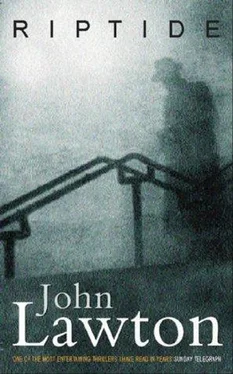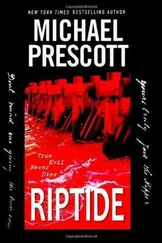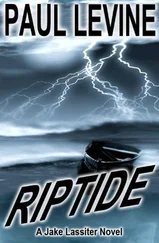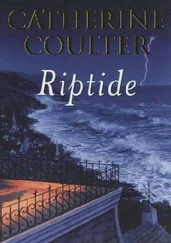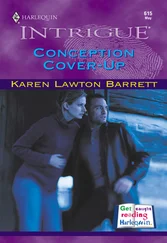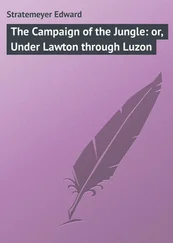‘Mr Chewter,’ Kolankiewicz said.
The man’s Victorian face cracked into a smile. ‘Professor Kolankiewicz. My, but it’s been a while. Is the Guv’nor expecting?’
‘No. But if he is free I would be grateful for an hour of his valuable time.’
Chewter cranked the handle on the side of the phone and announced them.
‘Professor Kolankiewicz, Guv’nor and-‘
He turned to Troy.
‘Sergeant Troy,’ said Troy, and then added, ‘of the Yard,’ as though explanation were needed.
‘Quite all right. Would you gentlemen care to go up?’
Chewter opened the cage door on an impossibly small lift. Troy found himself all but belly to belly with Kolankiewicz whilst staring
down at the top of his head. The lift stopped at the second floor, and there stood another short, stout man, wiping his hands on an oily rag to extend one dry if grubby hand to shake Kolankiewicz’s. He looked every inch a Churchill-the girth, the thinning hair, the jowls-but with a moustache, and the best part often years younger. Even Lord Haw-Haw had been known to confuse them.
‘You’ve brought me a new copper, then, Ladislaw.’
Nobody called Kolankiewicz Ladislaw. There were people at the Yard who’d known him since he first landed in England who probably did not know his Christian name.
‘My old friend Sergeant Frederick Troy, my even older friend Bob Churchill.’
They shook on the dubious connection of lasting friendship with the Beast of Lodz.
‘Troy,’ Churchill said. ‘One of the Devon Troys?’
‘No,’ said Troy. ‘Hertfordshire.’
‘Oh, I see. One of the Alex Troys. I knew your father once upon a time.’
Troy loved the expression, as though the two had met in some distant fairy tale-the constant tin soldier and the ugly duckling. It often seemed to Troy that his father had stepped out of something no more nor less credible than a fairy tale of his own weaving.
‘I’m a Dorset man meself. That lot over at Blenheim are a junior branch of the family. Now-what can I do for you?’
Kolankiewicz held up Cormack’s gun. Churchill took it from him.
‘Good Lord, a Smith and Wesson.35. Haven’t been made for about twenty years, been a while since I saw one. Small, dark and brutish,’ he said, and led the way through to the front room.
Troy had never seen anything like it. Every surface, every wall, held guns, guns by the dozen-guns in racks, guns in bits, and guns not yet built-walnut stocks, gunmetal barrels, leather cases. Down the length of the room ran a large table covered in red baize and littered with some of the most beautiful shotguns Troy had seen. The workmanship was exquisite. But all in all, it was pretty much what he might have expected to find on the premises of the finest gunsmith and ballistics expert alive. On a bench behind the table was a large, ugly, black, greasy machine gun as testament to the times in which they lived. They had clearly interrupted Churchill in the business of stripping down his Bren gun.
Churchill seated himself at the head of the table and whipped out the magazine from Cormack’s gun.
‘Automatic with a seven-shot magazine in the grip, a large pistol grip relative to the barrel size, as you can see.’
Troy did see. The pistol reminded him of nothing quite so much as a spud gun-a childhood toy capable of propelling a chunk of raw potato all of six feet.
‘Spring recoil mechanism with a hidden hammer. They stopped making ammunition for this last year. Full metal jacket bullet-lead centre with guiding sheath. Six grooves in the barrel giving a right hand twist to the bullet. You’ve a spent bullet from this, I take it?’
Kolankiewicz handed him the wodge of cotton wool. Churchill put a jeweller’s glass to his eye and looked at it.
‘Victim died, did he? Head shot, I suppose?’
Troy answered. ‘Yes. A policeman, as a matter of fact. I saw the body. The entry wound was just above the right ear.’
‘Exit wound?’
‘Wasn’t one. The bullet was recovered in the post mortem.’
‘Well-bone does that to a bullet. I suppose you want a comparison?’
‘If it’s possible.’
‘Oh, it’s possible all right. Did you recover the shell?’
‘No-I was the second person on the scene, and it had gone. I think we’re dealing with a scrupulous killer.’
‘Well-they’re few of them scrupulous enough. If you ever join the other side, Mr Troy, and find yourself clutching a smoking gun, destroy it. That’d be my advice. Now, if you gentlemen would care to join me in the cellar, we’ll bang off a few rounds.’
Kolankiewicz stepped into the lift. Only when Churchill tried to follow him in did it become clear that it would not hold two bellies of such rotundity. For a few seconds they jiggled around like a pair of hippos in a hat box, until Troy said ‘We could all walk,’ and they descended the steps to emerge below street level in a converted wine cellar.
‘This is the set-up,’ Churchill said, pointing off at a tunnel leading out under Orange Street. ‘We’ve fifteen hundred-gauge, twelve-bore cartridge cases, packed with cotton wool. Behind them, iron plate, behind that a few tons of rubble. We could fire an elephant gun at this lot without ricochet.’
‘Why fifteen boxes?’ Troy asked.
‘Largely,’ said Churchill, ‘because I’ve yet to find the gun that can fire a bullet through more than a dozen. Mauser’ll penetrate eleven or twelve, standard issue Webley no more than five or six. If, as you say, this bullet penetrated a human skull and spent itself in the cranium, then I’d say no more than two boxes.’
‘Can we simulate the effect of passing through bone?’
‘Indeed we can.’
Churchill picked up a square piece of oak. It looked to Troy to be about half or two-thirds of an inch thick. Churchill slotted it in front of the first case. Then he clipped the magazine into the butt of Cormack’s gun, and handed it to Troy.
Troy had no idea what to do.
‘I’m not really a gun person,’ he bleated.
‘Just point it and fire.’
Troy held the gun at arm’s length, just like they’d taught him at Hendon in his obligatory weapons training. That had been in 1935. He had not held a gun since.
‘No, no,’ said Churchill. ‘Not like that. Use your body.’
‘My body?’
‘That thing between your arms and your legs.’
Churchill took the gun from him, tucked his elbow into his hip, the gun-butt-edged into his belly, swung to face the boxes and fired, all in a single swift, almost graceful motion-startling to see in such an ungainly-looking man. Not only that, he’d hit the first box dead centre. If the box had had a target scrawled on it, this would have been a bull’s-eye.
Churchill walked down the tunnel to the second box, and flipped down the wooden side. He rummaged around and eventually said, ‘Nothing doing.’
The same pattern repeated itself with the third and fourth boxes. At last his hand emerged from the fifth, clutching a white ball of cotton wool, and inside it the bullet. He peeled back the layers and showed the spent bullet to Troy.
‘It’s intact,’ said Troy. ‘It isn’t bent at all!’
‘We’ll fire another just to be sure.’
Churchill banged off a second round, hitting the oak barely half an inch from the first, and retrieved the bullet from the fifth box again.
‘Now,’ he said, grinning like a schoolboy, ‘the fun really begins.’
On a bench at the far side of the cellar stood Churchill’s comparison microscope. He was not the inventor of this device, but he had modified it and refined it. And, as much as was possible when dealing with a body of men as naturally conservative as the English police, he had popularised it. He had proved its worth over the last ten or more years from the witness box at the Old Bailey. He had argued its merit in the pages of the Daily News only to find himself answered by a lengthy correspondence in the Mail from no less a figure than Bernard Shaw. All the same, men as sceptical as Onions or as ignorant as Nailer still deprecated its role. The only other such microscope Troy had ever seen was Kolankiewicz’s, which, compared to this, looked like it had been cobbled together from a Meccano kit. This was big, like a pair of binoculars on stilts, feeding two images into a single eyepiece. Churchill set the bullet that had killed Walter Stilton on the left hand plate, and one of the test bullets on the other. A flick of a switch and both specimens were flooded with light.
Читать дальше
